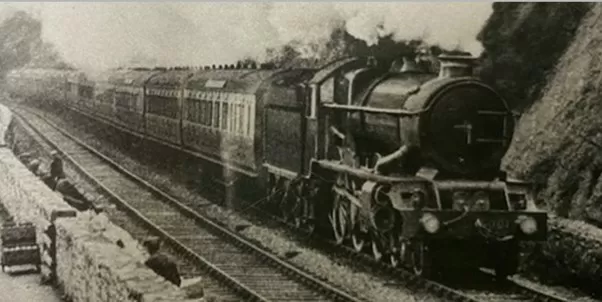A new public database is set to revolutionize the way we access information about railway accidents. In an effort to acknowledge the contributions of volunteers, The National Archives is launching the Railway Work, Life & Death project. This initiative will provide access to records of 4,500 railway staff who were injured or killed while at work between 1911 and 1923. The launch of this database is perfectly timed with Volunteers Week, a week to celebrate and recognize the invaluable work of volunteers.
The Railway Work, Life & Death project is a significant step towards preserving and sharing important historical records. The volunteers at The National Archives have put in tremendous effort to compile and organize the data, making it easily accessible for the public. This project is a testament to the power of teamwork and the impact volunteers can have on society.
The need for such a database was evident as railway accidents were a common occurrence during the early 20th century. With the rapid expansion of the railway network, accidents were inevitable and often led to serious injuries or even fatalities. However, until now, the stories of these railway workers were not easily accessible to the public. The Railway Work, Life & Death project aims to change this by making these records readily available to anyone interested in learning more about this important part of our history.
The launch of this database will undoubtedly have a positive impact on the families of the railway workers who lost their lives or were injured while on duty. It will serve as a reminder of their sacrifices and contributions to the railway industry. For those interested in researching their family history, this database will be a valuable resource. It will provide a glimpse into the lives of their ancestors and the often dangerous working conditions they faced.
The Railway Work, Life & Death project is not just a collection of records, but a concrete effort to recognize the contributions of railway workers. It is a platform to honour those who dedicated their lives to keep the railway system running, often facing dangerous and challenging conditions. These workers played a crucial role in shaping the railway industry and the nation as a whole.
The National Archives, along with the volunteers, should be applauded for their hard work and dedication in bringing this project to fruition. The organization has always been a leader in preserving and sharing important historical records, and this project is yet another feather in their cap. This database will continue to serve as a valuable resource for future generations, providing a glimpse into the lives of railway workers during this significant era in history.
Volunteers Week is an apt time to launch this database as it highlights the significant role of volunteers in society. Their unwavering commitment and dedication have made it possible for us to access this valuable information. This initiative is a perfect example of how volunteers can make a positive impact and contribute to society in meaningful ways.
The launch of the Railway Work, Life & Death project is a momentous occasion, and it is a privilege to witness this historic event. The National Archives is undoubtedly leading the way in preserving and making accessible important historical records. This database will undoubtedly serve as a source of knowledge and inspiration for generations to come.
In conclusion, the Railway Work, Life & Death project is a commendable effort that celebrates the contributions of railway workers and recognizes the hard work of volunteers. It is an invaluable resource for those interested in the history of the railway industry and a fitting tribute to those who lost their lives while on duty. The National Archives and the volunteers involved in this project deserve our gratitude and thanks for their efforts in preserving this important aspect of our history. Let us continue to celebrate the power of volunteers in shaping our society for the better.





![Complete BritRail Pass Guide [Types, How to Use It, Pros + Cons]](https://inside-news.uk/wp-content/uploads/2025/06/00221EB4-BCA2-4DBB-6CD4-83DBC37D71FA-120x86.webp)















